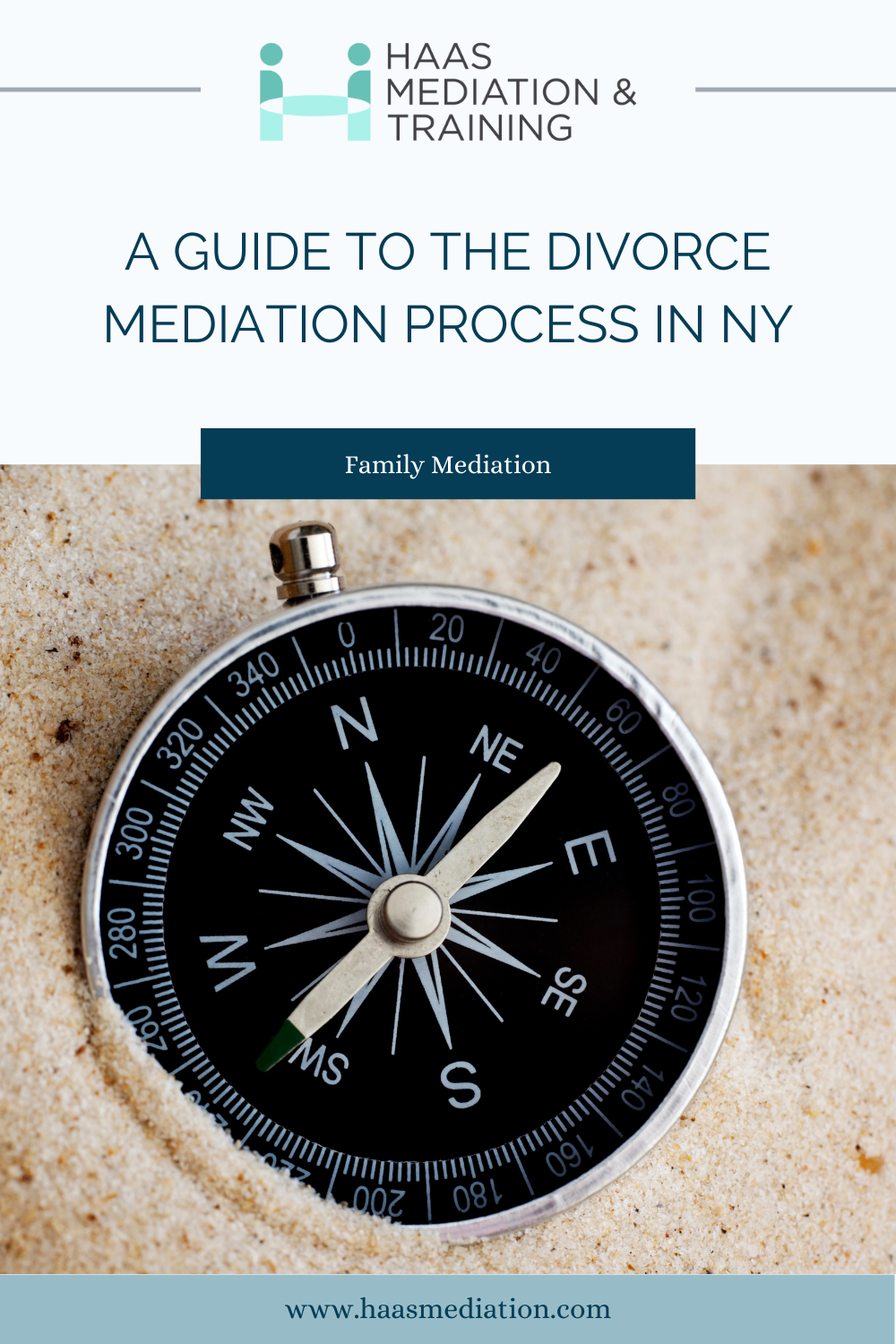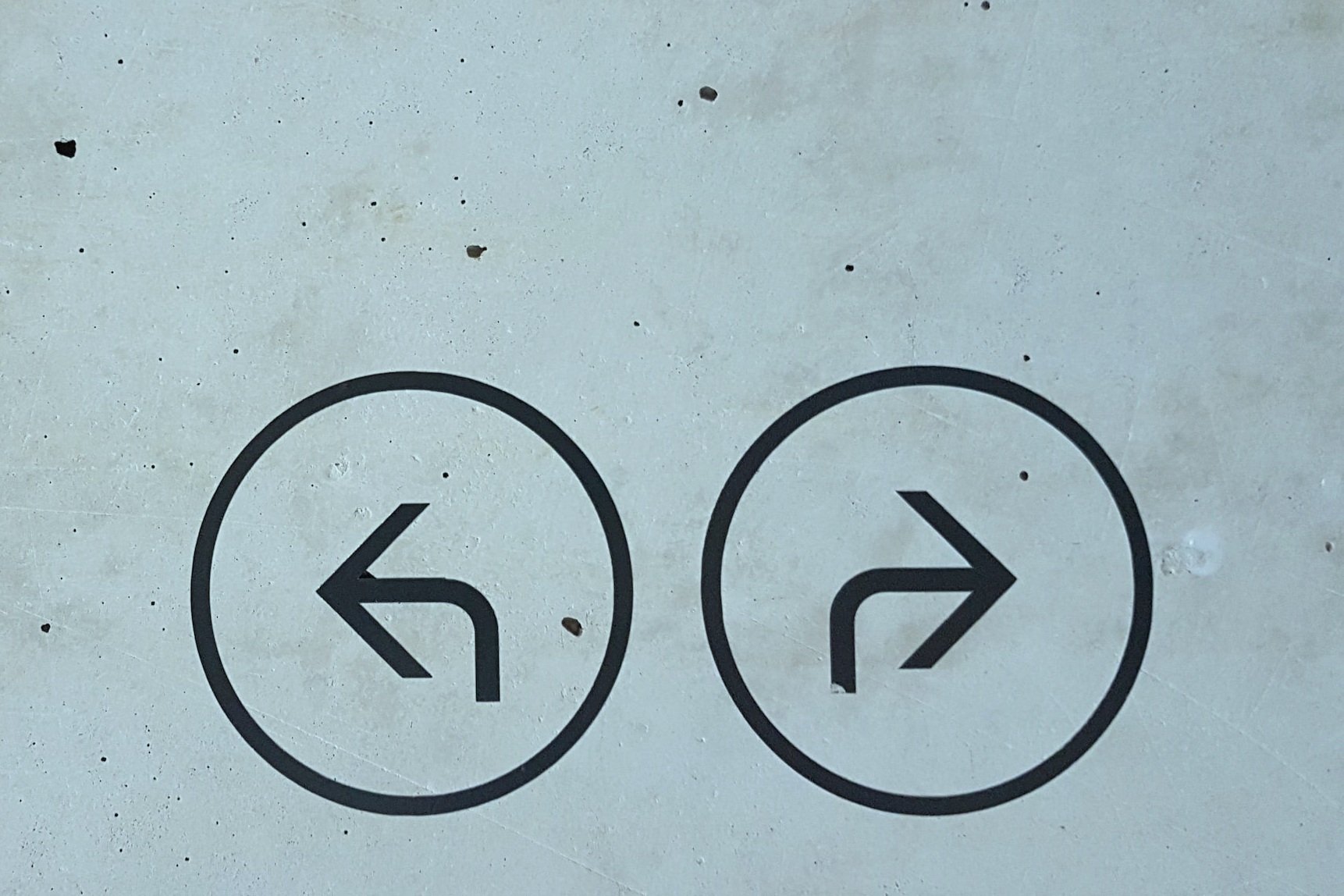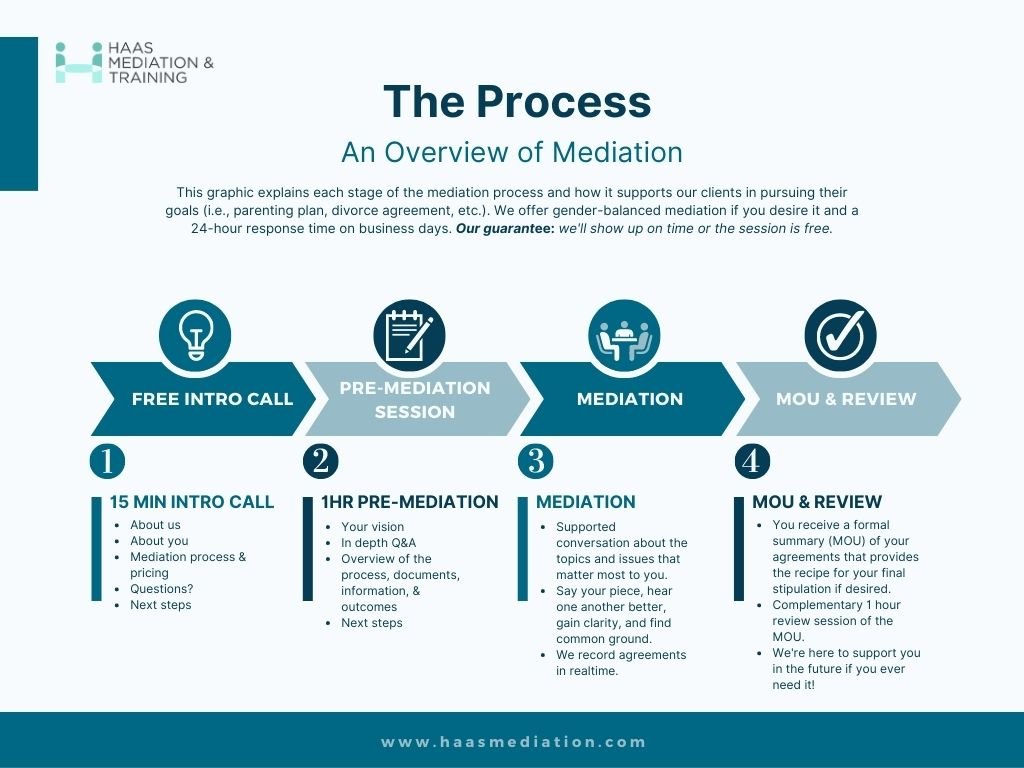A Guide to Divorce Mediation in NY (2024)
An honest intro.
I can't count the number of times I've shared my occupation with someone and heard the words, "Oh, you're a mediator... my ex and I used a mediator, and they were horrible."
This article isn't about mediation in general because there are too many mediators and mediation styles in NY to make generalizations about the field. I know and work alongside countless mediators who are kind and supportive professionals with immense experience and skill. However, this isn't always the case. Not all mediators are created equal, and not every journey to settlement is rewarding.
What I know
However, I can speak for myself and Haas Mediation's practice and process. First, I'm proud of our work to help couples get the assistance they need to reach agreements that benefit their time, money, and future. Second, I support a client-centered mediation process, which I'll expand on in this article.
Couples and family members I work with resolve their most disruptive disagreements in a way that feels human. We offer divorce mediation services in-person and online in NY. You can learn more by clicking HERE.
What is divorce mediation?
Divorce mediation is simply a supported conversation prioritizing your vision for separation. Unlike a court-litigated divorce, the two parties talk about what they want and resolve their disagreements directly. It offers a more human alternative to divisive court battles - a way of getting divorced well.
In mediation, couples work directly with a divorce mediator to sort out every aspect of their divorce and form a mediation agreement that later serves as a template for the final settlement agreement. It's another way of reaching your destination and achieving a divorce.
Mediation is ultimately an opportunity to get divorced your way with a mediator's support.
What do divorce mediators do?
As a divorce mediator, I help support a collaborative divorce process. I provide my clients with an understanding of the topics that need to be discussed, highlight important details that get missed, help them to identify, classify and divide property, calculate support numbers, and write up a draft agreement of all of their decisions.
More importantly, I assist couples in having the best conversation possible about the issues they care about most! I uphold my client's right to choose what they want for their future and create a safe and productive environment. I help clients hear and be heard, clarify and resolve differences, and find mutual direction.
How's a mediator different from a lawyer?
Unlike a lawyer or attorney, mediators don't give legal advice or choose sides. It's essential to maintain our neutrality, and weighing in on legal matters (which aren't often clear) compromises our role in most cases. However, this lets spouses focus on something often more valuable - the chance to discuss what each person thinks would work best for them (and their family if they have children). If the law is an integral part of the conversation for a spouse or a person, I foster space for them to communicate their thoughts. As an aside, it's challenging to know what a judge would decide, hence drawn-out court battles that do not resolve until one party relents.
Except for collaborative law, to an extent, lawyers advocate for and represent each party separately, and a mediator helps support parties mutually.
Do mediators make lawyers irrelevant?
Not at all! Although mediation does not require lawyers, mediators do not make lawyers irrelevant. On the contrary, the benefit of mediation is that it transforms the role of a divorce attorney from that of an expensive advocate into that of a consultant.
As mentioned earlier, mediators are neutral and don't offer legal advice. Many people choose to retain a consulting attorney throughout the process for a source of legal input. Clients also hire lawyers to draft their Memorandum of Understanding (summary of all of their decisions in mediation) into a binding settlement agreement. The lawyers can then provide a final review of the divorce settlement agreement, ensuring everything is in order. In most cases, lawyers then help with the laborious process of filing for divorce mediation.
Will You Still Need a Lawyer?
Most mediators advise clients to hire a lawyer on a consulting basis and to review, draft, and submit their final divorce separation agreement. It's often helpful to have a second set of eyes read your agreement before it goes before a judge. The lawyers, however, only have limited involvement and need not attend mediation. This saves the couple thousands in costs.
Other couples hire paralegal firms instead of lawyers to finalize and file their divorce settlement agreements. You have options.
How's the Mediation Process Unique?
Many couples choose mediation because they don't want a one-size fits all approach to separating their lives. As a mediator, I help couples define their divorce process. Generally, couples need to work together to create a divorce process that meets the family's needs and reach an agreement. I help clients discuss these issues and adapt to the best approach for each party.
What are the steps in the mediation process?
As mentioned above, the mediation process looks different for each family. However, most mediations take the following steps:
1.Free Introductory Call: Each party speaks with the mediator for 10-15 to share their interest, ask questions, and learn more about mediation.
2. 1-on-1 Preparation Session: If the couple is interested in taking the next step, both spouses meet privately with the mediator for an hour to explore issues more in-depth and gain more profound clarity about the process, how divorce mediation can help them in specific and determine their next steps for moving forward.
3. Agreement to Mediate: If the couple agrees to move forward, all parties, including the mediator, sign an agreement outlining the confidential and voluntary nature of the process and the mediator as a neutral aid.
4. Mediation begins: Either in-person or online, both parties engage in supported conversation during the mediation session. The mediator helps them discuss everything from property division and their desired timeline to creating a parenting plan if they have kids and how they want to file for divorce. The mediator records each agreement in detail as the conversation moves along.
5. Mediation ends: After they reach an agreement on every aspect of resolving their separation, the mediator drafts a memorandum of understanding (MOU) for the parties. This document represents all of their decisions and can be used by attorneys or a paralegal to create the final settlement agreement. ***
If you're interested in learning more about this process in specific, you can check out our Divorce and Separation Mediation page, where we answer our most frequently asked questions.
***Check out our article on DIY Divorce Forms (2023) for more information on filing for yourself and other alternatives!***
Will the Judge accept our mediation agreement?
In general, judges value mediation and the less divisive route it provides to parties seeking a settlement agreement. For example, here's how the new york court website describes the process, "A neutral third party called a “mediator” helps the couple to work through the issues of their divorce and reach a mutually agreeable settlement." Although it's impossible to say what a judge will or will not do, judges respect that mediated agreements reflect the will and intention of the parties.
I have yet to have to help a couple whose final stipulation of divorce gets sent back for further review. This is in part because my clients take their MOU to an attorney or paralegal post-mediation to have a second set of eyes review the document and prepare the final stipulation of divorce for filing with the courts. This safety measure helps to ensure that the parties' agreement not only reflects their decisions but is also ready for the courts.
How long does divorce mediation take?
Another pro of divorce mediation is that the client determines the timeline. The mediation moves along according to the parties' individual needs without the interference of court calendars or deadlines. A typical divorce mediation case takes between 2-8 sessions. Couples without children generally take less time in mediation than families with children, as parenting plans and child support, and spousal issues take more time to discuss.
When shouldn't I mediate?
For reasons of domestic violence, safety concerns, lack of transparency (financial or otherwise), and other issues, some people choose not to pursue mediation. It's important that you feel safe and secure in whatever process you choose. If you're concerned about your safety and are interested in exploring options for divorce, visit Legal Aid for advice.
You can always schedule a call with us to process your decision and concerns with us as well. We're here to help.
In conclusion, THE BENEFITS OF MEDIATION
As a mediator, I talk about the benefits of mediation forever. We help families separate in a way that feels true to who they are, cares for their resources, and sets in motion their vision for the future.
As I see it, the math is simple. Mediation = Opportunities:
You talk through and shape your agreement with one another and, in so doing, always know where the other person is at (as different from a game of telephone).
Mediation is 5-10x cheaper than litigation... and you can divorce faster
Your vision of what is best for you and your family sets the stage for the conversation.
We support a space where identifying, classifying, and distributing assets is possible and constructive.
You only pay for the time you need and move at your own pace (fast or slow).
Even if you don't agree on everything, it's still more cost and time-effective than litigation. You can take your arrangements with you.
You can co-create communication patterns that serve you well after completing the process.
We can help.
At Haas Mediation, we transform challenging topics into meaningful opportunities for deciding what will best serve you, your family, and your children, if you have them. Our goal is to see clients enjoy lasting agreements.
We provide a confidential, judgment-free, and supportive space and help you work out differences (small and big) and resolve every aspect of your divorce to keep moving forward.
We take the time to understand your process and adapt our support to meet your communication style, needs, and time as you take matters into your own hands.
Move on with more profound peace. Read more below for information on scheduling a free intro call with us.
Interested in learning more?
- Andrew Haas, Founder & Principal Mediator
Schedule a free intro call.
Intro calls offer a first step toward determining your next steps and take 10-15 min. Whether or not mediation is right for you, this is an opportunity to learn more.
During your intro call, you can:
Share about your interest
Ask questions
Learn more about the pricing and mediation process
Talk about the next steps










